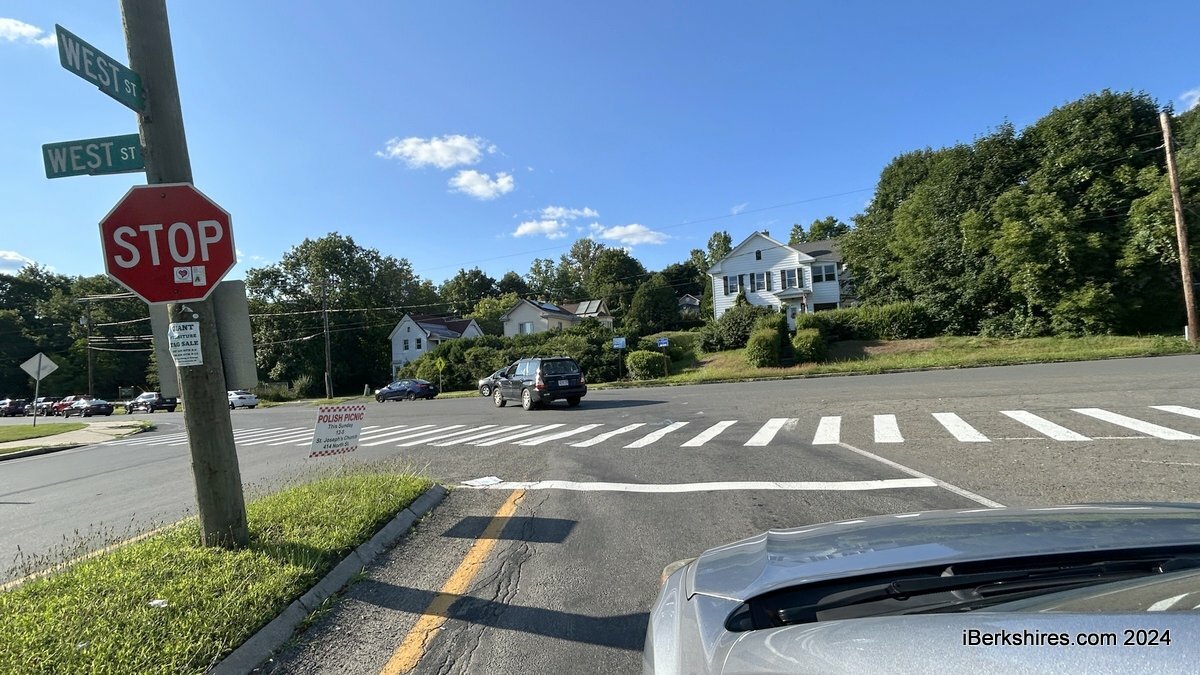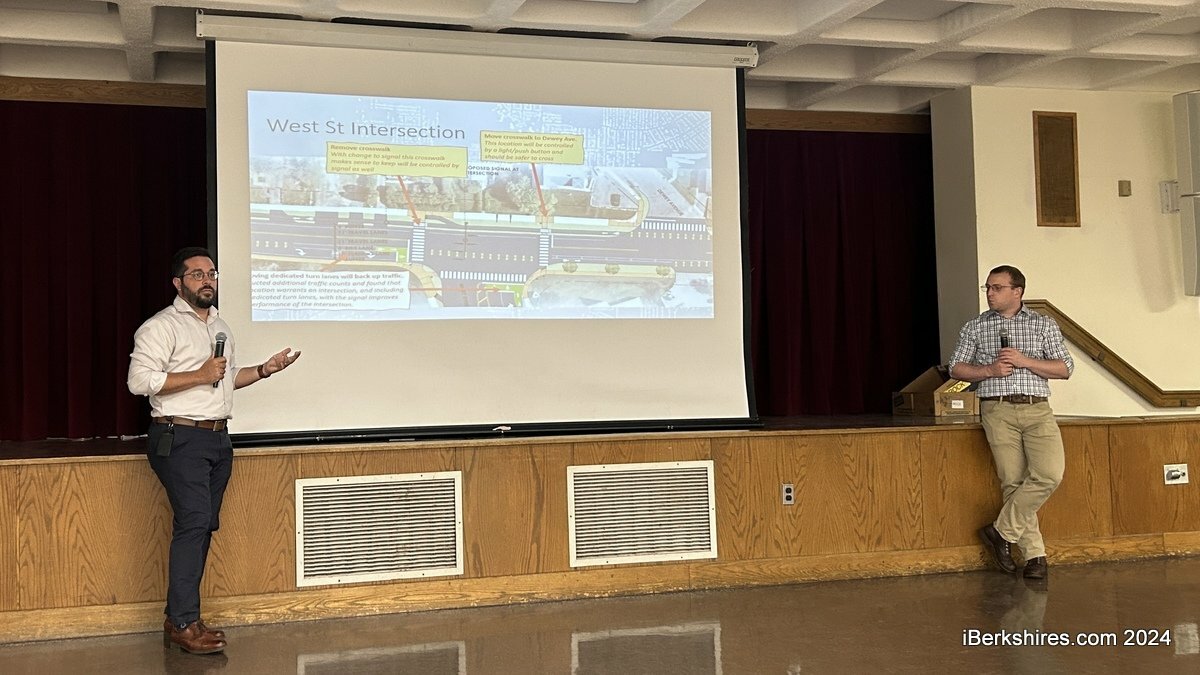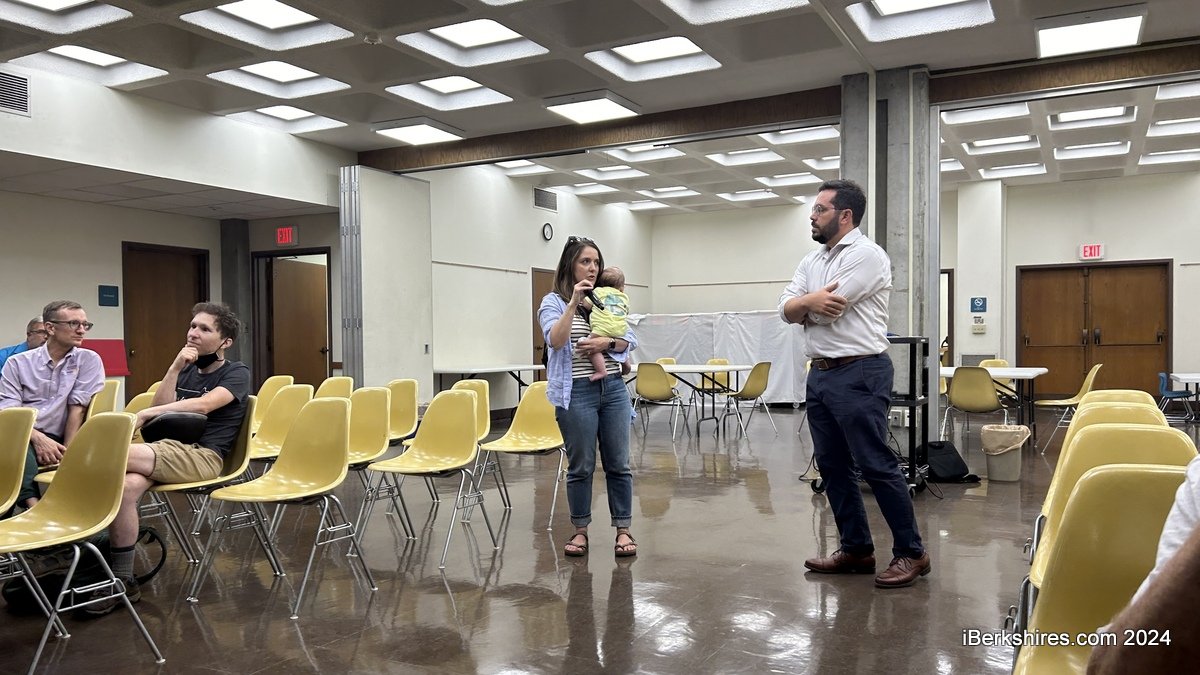

Signaled Intersection Proposed for West Street in Pittsfield

PITTSFIELD, Mass. — The city believes that traffic lights at the intersection of lower and upper West Street will improve safety.
Last week, a hearing was held for improvements on the roadway that saw two pedestrian deaths last year. After a few iterations, the updated design reduces the footprint and adds a signal at the intersection of lower and upper West.
"This is a big change," City Engineer Tyler Shedd said.
"Traffic signals are expensive and it's part of the reason why we decided to reduce the sort of scope along West Street and stopping at Backman Avenue instead of continuing with the resurfacing all the way to Valentine Road."
All three directions will have a signal and it will be bordered by three crosswalks.
The City Council has authorized a $2 million capital borrowing for the streetscape improvements on the corridor and the hope is to bid work in the fall with construction beginning in the springtime.
Ward 6 Councilor Dina Lampiasi appreciates the effort and a lot of the work done to improve safety in the corridor but is hesitant about the light.
"I'm going to be honest, I'm not a big fan of the light," she said. "And residents I've spoken to I think it's about a 50/50."
Shedd explained that there wasn't another change that would improve pedestrian safety without sacrificing vehicle travel time. A traffic study showed that going from a single stop sign coming from lower West Street to a signalized intersection raised the intersection's grade classification by several points.
"It makes it a well-performing intersection," he said.
"It's not perfect, people are going to have delays and back up a little bit but it's an improvement for vehicles and then because of the pedestrian-exclusive crossing, it will be safer for pedestrians to cross."
Commissioner of Public Services and Utilities Ricardo Morales added that a roundabout was another option but it "takes up a lot of space in a section of the city that we do not have space to deal with."
There was a proposal to eliminate the right-hand turn lane going onto lower West Street but it did not bode well with the community and was scrapped.
"There's been multiple minds to solving the issue here and I think a signalized intersection solves a lot of the issues," he said.
"It still provides for some simplicity at the intersection, we are reducing the radii on the curbs where we can and as much as we can, we are providing bicycle options for people moving on bicycles by providing the shared use paths on the right turn lane here, and we're shortening the distance pedestrians can travel and frankly without a signal here, it would still be dangerous — or less safe — to have crosswalks at all the legs in this intersection."
Shedd said to keep the dedicated right turn lane but still make the intersection safer, it basically means a signalized intersection.
A suggestion was made to place a temporary signal at the intersection to see how the community responds but it is reportedly too complex of an area.
The project area from Jubilee Hill to Backman Avenue is a 25 mph corridor that is said to see the most egregious speeding. It aims to improve pedestrian comfort, add bike lanes in line with the Bike Facilities Master Plan, and bring vehicle speeds to compliance.
The speed limit has been in place since 1972.
"We're not trying to change that, it's been that way for a long time from Backman to Francis Ave, which is the corridor we're now looking at," Shedd said.
In January 2023, Shaloon Milord was struck and killed while crossing in front of Dorothy Amos Park, and in October 2023, Shane Cassavant was struck and killed farther up the street while doing roadwork. The community has called for safety solutions and there were two meetings on proposed improvements, with residents unable to come to a consensus at the second meeting.
Also new to the design are raised crosswalks between Dewey Avenue and Government Drive and College Way, in front of Dorothy Amos Park, and in front of St. Mark's Church. These were compared to a similar design on Tyler Street that is meant to slow traffic.
"If you've driven Tyler Street and you kind of check your speedometer if you're going 30 miles an hour, you're not going to bite your tongue off," Shedd said.
"If you're going 20, 25 miles an hour you might not really notice the bump. If you're going 40, you'll feel it and that's sort of the intent is that it encourages people through a slightly punitive measure to follow the speed limit."
Tags: traffic safety,















